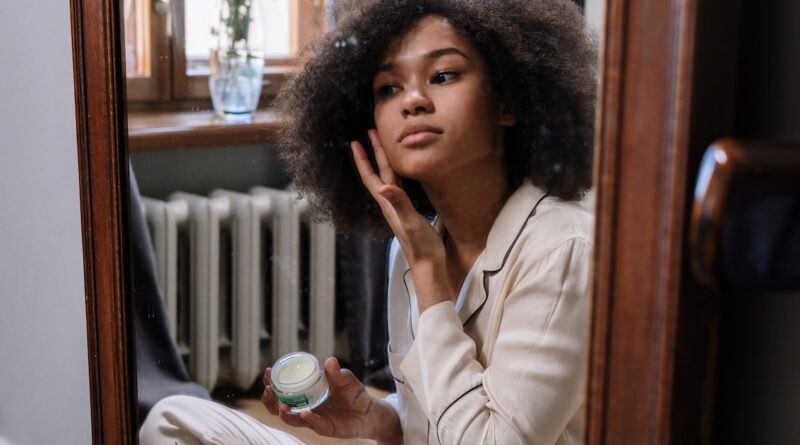How to take good care of the skin?
How to take good care of the skin? Although skin aging is a natural process for our body, as well as for the rest of our organism, dehydrated skin can put our age “in check” and provide a much more aged and tired appearance.
However, what perhaps few people know is that the lack of hydration causes damage to the largest organ in our body that is not restricted to the aesthetic issue. In addition to dryness and the possibility of creating scales, dehydrated skin is susceptible to irritation, infections and several other problems.
So hydrate your ideas and see how the practice of hydration is important for both women and men and at any time in life.
The importance of skin to health
Moisturizing the skin is not a matter of vanity. So little freshness. It is health care like any other, after all, the skin is the great shield of our body and is constantly in contact with the environment, exposed to the most diverse phenomena, such as cold and heat, sun, wind, among others.
The skin plays a key role in preventing parasitic invasions, preventing excess water evaporation, regulating our body temperature, protecting against radiation and even producing vitamin D, obtained from adequate exposure to the sun.
Proper skin hydration prevents unwanted effects such as flaking, itching and roughness, which are characteristics of dryness. According to information on the website of the Society of Dermatology (SBD), adequate hydration of the skin prevents possible irritations, softens the whitish appearance, improves texture, and most importantly: protects the skin from external agents such as pollution, use of very hot water or cold, and environmental and food aspects.
How should hydration be done to take good care of the skin?
Skin hydration occurs through a combination of practices, such as the use of certain products, good eating habits, correct water intake, among others.
In the case of cosmetics, even some supporting actors are important.
According to the SBD, even if some makeup and sunscreens do not have the specific function of hydrating the skin, certain products can help for that purpose. That is, the secrets for healthy skin are closer than you might think, through daily care. Check out:
Drink a lot of water
Among the specific care for the dermis, the regular intake of water is essential to help in the maintenance and proper functioning of the body. In general, consumption of 2 to 3 liters throughout the day is indicated.
Use moisturizing creams
This practice should be considered one of the most important steps in daily care, as hydration is responsible for balancing the amount of water in the skin, leaving it looking healthier, firmer and more beautiful. Use specific products for the skin of the face and body
Choose ideal products for your skin type
For those with oily skin, light and non-greasy textures are the best options. Already for dry skin, denser moisturizers, such as creams and creamy lotions, are more suitable.
Be careful with the baths
In order to maintain a well-hydrated skin, it is necessary to avoid long and very hot baths, as this can remove the natural oiliness of the dermis. Also avoid the excessive use of sponges and soaps.
Hydrate at the right time
It is recommended that hydration be done right after bathing, as the steam makes it easier for the active ingredients to be better absorbed by the skin.
always wear sunscreen
Even though the sun is essential for our health, we need to enjoy it with balance, as excess sun exposure exposes the skin to burns and even the development of skin cancer. Therefore, use sunscreen, as well as other resources such as hats, caps, appropriate clothing, etc.
Protect your skin before shaving
Hydration is very important for depilation to be done effectively and with less risk to the skin. Remember that it should always be done before and not right after depilation to avoid clogging pores and ingrown hairs.
Do physical exercises regularly
Yeah, moving is good for the skin too. In addition to being indispensable for our health and well-being, regular exercise promotes skin oxygenation and toning.
Eat well
Maintain a healthy diet, consuming foods rich in vitamins A, C, E and the B complex. Avocados, for example, are a good source of vitamins A and E. Citrus fruits, such as oranges, lemons and acerolas are famous for being rich in vitamin C. Olive oil, almonds and chestnuts are good sources of vitamin E. To replenish vitamin B2, a good tip is to bet on dark leafy vegetables. And to get vitamin B6, bananas are an excellent choice.
Don’t sleep with makeup
Sleeping with leftover makeup can cause acne, infections and bring a lackluster look to the skin. Do the correct cleaning and hydration before bed.
Try to get a good nights sleep
Sleeping well is essential for our health as a whole and, consequently, interferes with the health of your skin.
Finally, consult a dermatologist whenever necessary, especially if you notice any skin disorders.
For more interesting articles visit our blog.

